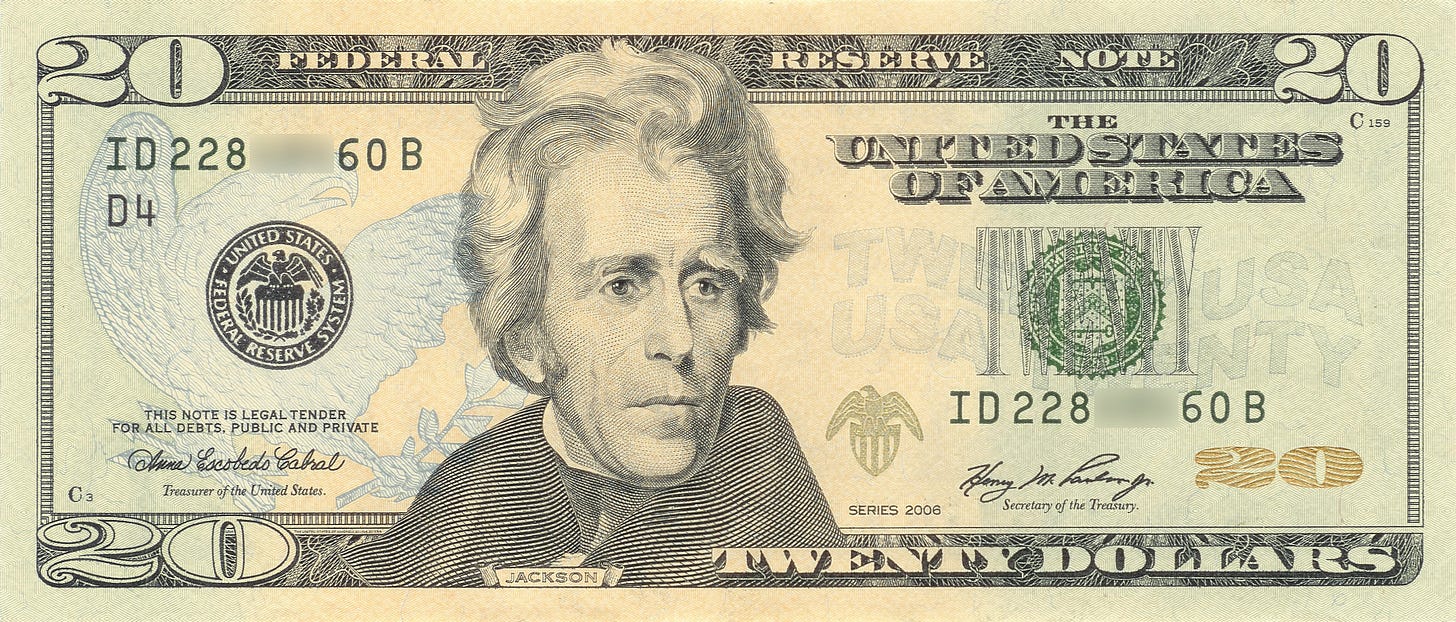The One Time the USA Had No Debt
Washington put on a parade to celebrate Andrew Jackson's great accomplishment.
‘For the Lord your God will bless you as he has promised, and you will lend to many nations but will borrow from none. You will rule over many nations but none will rule over you. - Deuteronomy 15:6
In the vibrant tapestry of American history, few threads shine as brightly as President Andrew Jackson’s monumental achievement of erasing the United States’ national debt in 1835—the only time the nation has been wholly free of debt chains.
This feat, born of Jackson’s iron-willed resolve and populist fervor, was not merely a fiscal victory but a moral crusade, a testament to his belief that debt was a shackle on the individual liberties of the United States’s citizens.
On January 8, 1835, Washington, D.C., erupted in a dazzling celebration, timed to coincide with the 20th anniversary of Jackson’s victory at the Battle of New Orleans.
The people celebrated with a parade.
The capital’s elite—senators, congressmen, and dignitaries—gathered in a grand hall afterward, their spirits lifted by the national debt having been completely paid.
The air buzzed with toasts and speeches, each orator heralding a new era for the United States, a republic unshackled from foreign and domestic creditors. One senator rose, his voice ringing, to declare:
‘Gentlemen … the national debt … is PAID.’
When Andrew Jackson took the oath of office on March 4, 1829, the nation’s debt totaled 58.4 million, the equivalent of 2.04 billion in 2025 dollars.
It took President Jackson six years to pay off the nation’s debt, his greatest accomplishment as President. Since its formation in 1776, the United States carried government debt until 59 years later, in 1835, the nation’s entire debt was paid off.
What’s even more amazing is this:
How did President Jackson Do It?
Andrew Jackson, the nation’s seventh president, took office in 1829 with a fire in his heart and a vendetta against debt, which he called a “national curse.”
His disdain for owing money was personal, forged in the crucible of a 1795 land deal gone sour that left him clutching worthless paper notes and a lifelong mistrust of banks and speculation.
To Jackson, debt was a fiscal burden and a moral failing, a chain binding the young republic to creditors and aristocrats. When he assumed the presidency, the national debt was $58.4 million, a lingering shadow of the War of 1812’s $127 million peak.
With the tenacity of a frontier warrior, Jackson set about slaying this dragon. He wielded a three-pronged sword:
Keep reading with a 7-day free trial
Subscribe to Wade Burleson at Istoria to keep reading this post and get 7 days of free access to the full post archives.






